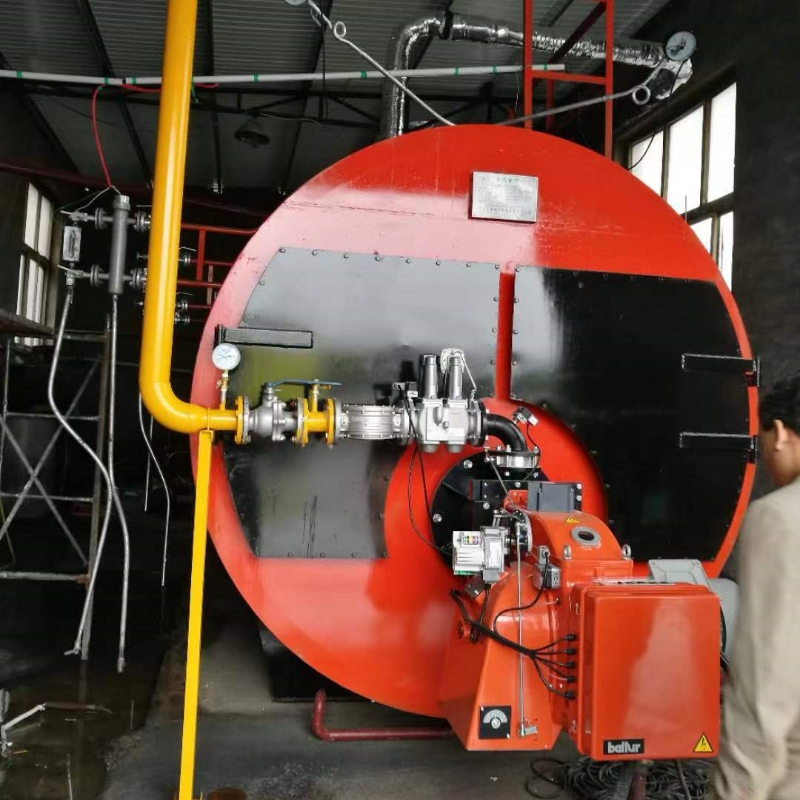
Nov . 21, 2024 05:28 Back to list
steam boiler chemical treatment
Steam Boiler Chemical Treatment
Steam boilers are essential components in many industrial processes, providing the necessary steam for heating, power generation, and other applications. However, the operation of these boilers comes with challenges, primarily from the buildup of scale, corrosion, and other contaminants that can significantly impact efficiency and longevity. To mitigate these issues, effective chemical treatment is vital.
Importance of Chemical Treatment
Chemical treatment in steam boilers serves several crucial functions
1. Scale Prevention Hard water contains minerals such as calcium and magnesium that can precipitate and form scale within the boiler system. Scale acts as an insulator, reducing heat transfer efficiency, leading to increased fuel consumption and operating costs. By using anti-scaling chemicals, such as phosphonates or polymers, operators can prevent mineral deposits and maintain optimal thermal efficiency.
2. Corrosion Control Corrosion is often caused by oxygen and carbon dioxide entering the boiler system, leading to metal degradation. This problem can be exacerbated by the presence of impurities in the feedwater. Chemicals like oxygen scavengers (e.g., sodium sulfite) and pH controllers (like amines) are commonly used to minimize corrosion. Maintaining a controlled and slightly alkaline environment helps protect iron and steel components from corrosion.
3. Sludge Control Impurities and dissolved solids can lead to sludge formation, which settles at the bottom of the boiler. This sludge can restrict circulation, contribute to overheating, and lead to boiler failure. Chemical treatments that promote the dispersion or removal of sludge are critical. Polymers and dispersants can help keep particulates in suspension, making it easier to remove them during blowdown operations.
4. Biological Control In some cases, biological growth such as algae or bacteria can occur within the boiler system, especially in warm, stagnant environments. This can lead to sludge formation and further corrosion issues. Biocides are employed to control microbial growth, ensuring that the water remains clean and free from harmful organisms.
Recommended Chemicals for Treatment
The selection of chemicals for boiler treatment should be based on the specific water chemistry and operational needs. Common categories of chemicals include
steam boiler chemical treatment

- Oxygen Scavengers Sodium sulfite and hydrazine are commonly used to remove oxygen from the water. This reduces the potential for corrosion.
- Scale Inhibitors Phosphate-based treatments effectively prevent calcium carbonate scale, while polymers and other organic compounds can inhibit various scales, including silica deposits.
- pH Adjusters Alkalinity is crucial for preventing corrosion. Sodium bicarbonate or caustic soda can be added to maintain pH levels between 10.5 and 12, ensuring an ideal environment for equipment protection.
- Sludge Conditioners These can either facilitate the removal of sludge or prevent its formation altogether. Polymers often play a vital role in this aspect of treatment.
- Biocides Chemicals like isothiazolinones or quaternary ammonium compounds are employed to manage microbial growth, particularly in hot water systems.
Monitoring and Maintenance
Chemical treatment is not a set and forget solution—it requires regular monitoring and adjustment based on operating conditions and water quality. Routine analysis of boiler water chemistry, including parameters like pH, conductivity, and hardness, is essential. Operators should conduct periodic blowdowns to remove accumulated sludge and other impurities.
Furthermore, the implementation of automated monitoring systems can enhance chemical management efficiency. These systems can adjust the feed rates of treatments based on real-time data, ensuring optimal operating conditions and prolonged boiler life.
Conclusion
In conclusion, effective chemical treatment of steam boilers is essential to maintain efficiency, prevent corrosion, minimize scale formation, and ensure long-term operational reliability. By using the appropriate chemicals and closely monitoring the boiler water chemistry, operators can significantly reduce maintenance costs and improve overall performance. As industries continue to rely on steam boilers for various applications, understanding and implementing effective chemical treatment strategies will remain a critical aspect of boiler management.
-
High-Efficiency Commercial Oil Fired Steam Boiler for Industry
NewsJul.30,2025
-
High-Efficiency Biomass Fired Thermal Oil Boiler Solutions
NewsJul.30,2025
-
High Efficiency Gas Fired Thermal Oil Boiler for Industrial Heating
NewsJul.29,2025
-
High-Efficiency Gas Fired Hot Water Boiler for Sale – Reliable & Affordable
NewsJul.29,2025
-
High Efficiency Biomass Fired Hot Water Boiler for Industrial and Commercial Use
NewsJul.29,2025
-
High-Efficiency Biomass Fired Hot Water Boiler for Industrial Use
NewsJul.28,2025
Related PRODUCTS






















